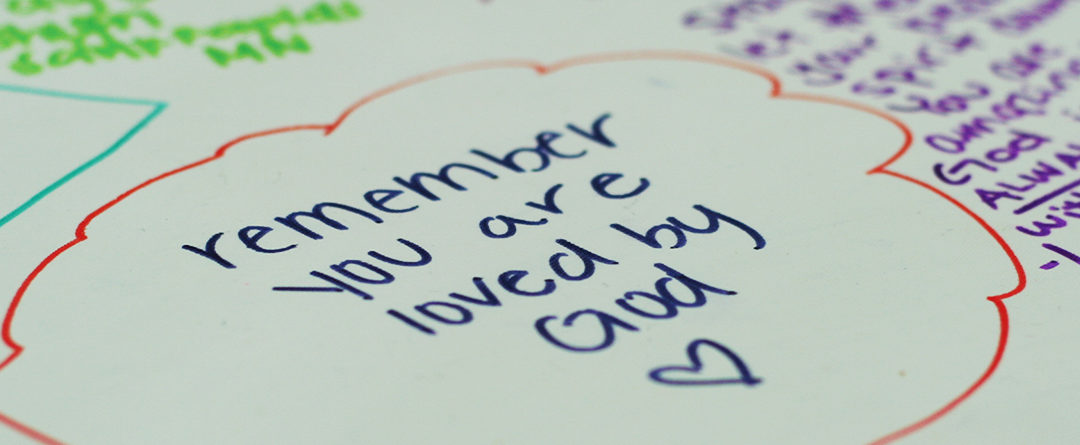by Angela T. Khabeb
re·gret /rəˈɡret/: a feeling of sadness, repentance, or disappointment over something that has happened or been done.
What if you encountered a powerful and benevolent genie who could grant you one do-over of your choice? Would you consider going back in time and doing something differently?
I don’t know about you, but I’ve made enough mistakes in my life that I would welcome a do-over or two. I’m sure I’m not alone. But occasionally, I encounter people who say, “I have no regrets.” Or, “I don’t believe in regrets.” Although I find their words hard to believe, their logic goes something like this: “Everything that’s happened in my life up to this point has made me the person that I am. I wouldn’t change a thing.”
Such claims encourage me to question their definition of regret. Perhaps there is some confusion between guilt and regret. There are certainly some similarities, but there’s also a major difference. Guilt is the result of having committed a specified or implied offense or crime. The word carries an automatic value judgment. After all, guilty people recognize that they have done something wrong and ought to be punished somehow.
But doesn’t regret carry a different connotation? Isn’t regret simply a part of the human condition? Isn’t regret a natural result of the gift of hindsight? I contend that regret is universal.
I am reminded of Paul’s words to the Romans. Paul laments that knowing what is right is not enough. He wrestles with his own actions in a way that’s familiar to everyone. “For if I know the law but still can’t keep it, and if the power of sin within me keeps sabotaging my best intentions, I obviously need help!. . . I decide to do good, but I don’t really do it; I decide not to do bad, but then I do it anyway. . . . Something has gone wrong deep within me and gets the better of me every time” (Romans 7:17-20, The Message).
Maybe when people say they have no regrets, what they actually mean is that they refuse to allow past disappointments, mistakes, or even tragedies to negatively affect their lives today. But acknowledging regret can be cathartic and even empowering. Having regrets does not mean that we are bad people. Regretting a decision we’ve made doesn’t negate our good intentions. Neither does it speak to our character or our self-worth.
My father always told me that most people make the best decisions they can at the time that they make them. Fortunately, retrospect often offers us more enlightened perspectives. As we reflect, through wisdom’s lenses, on choices we’ve made, we usually recognize alternative paths. More life experience typically leads to more awareness, understanding and insight.
Regrets span from trivial to tragic
 Regret is an interesting thing. There are things I regret doing, and other things I regret not doing. There are also things I regret that were done to me. Certainly, our regrets span the continuum from trivial to tragic. For example, when I go through old photos, there are more than a handful of hairstyles and hair colors I should have avoided. (Don’t even get me started on the Jheri Curl in junior high). But also in that box of old photos is a picture of a dear friend who died by suicide. I thought about her often the week before she died. I wanted to call her but decided to do it later. I regret that decision. It’s not that one phone call from me would have made a difference necessarily, I don’t think, but at least my friend would have known that she was deeply loved and treasured.
Regret is an interesting thing. There are things I regret doing, and other things I regret not doing. There are also things I regret that were done to me. Certainly, our regrets span the continuum from trivial to tragic. For example, when I go through old photos, there are more than a handful of hairstyles and hair colors I should have avoided. (Don’t even get me started on the Jheri Curl in junior high). But also in that box of old photos is a picture of a dear friend who died by suicide. I thought about her often the week before she died. I wanted to call her but decided to do it later. I regret that decision. It’s not that one phone call from me would have made a difference necessarily, I don’t think, but at least my friend would have known that she was deeply loved and treasured.
Ultimately, regret is both gift and challenge. We make mistakes and we learn as we grow. We fall and we rise. It is all part of the abundant life that God desires for us. Our faith gives us a foundation based on God’s promise of transformation. Fortunately for us, Jesus is intimately aware of our human condition and offers us grace upon grace. Our Savior invites us into abundant life so that we can live fully in the grace of God. Grace is vital because we are flawed. Grace makes us acutely aware that sometimes our decisions or indecisions lead us down a regrettable road. But thankfully, no matter where our paths take us, God’s mercy intersects with regret and our faith journey flourishes.
God uses our life experiences —the good, the bad, and the ugly—to shape us into a sharper image of the resurrected Christ. And all of us, with unveiled faces, seeing the glory of the Lord as though reflected in a mirror, are being transformed into the same image from one degree of glory to another; for this comes from the Lord, the Spirit. (2 Corinthians 3:18).
As people of faith, we are lifted above guilt and shame by God’s grace. We receive the gift of retrospect and insight, which allows us to embrace new wisdom without judgment. Ultimately, as people of faith, our hope is in our promise from sacred scripture. “We know that all things work together for good for those who love God, who are called according to God’s purpose” (Romans 8:28). Since we have such a hope, we act with great boldness — regrets and all!
Discussion questions:
1. Do you think it is possible to life a no-regrets life? Share your thoughts.
2. What positive impacts have regrets had in your life? (Think about wisdom you’ve gained from challenging life experiences.)
3. Describe a time when you recognized the hidden hand of God at work in your life; bringing good out of regrettable situations.
Closing Prayer
Gracious and loving God, thank you for your gift of the Holy Spirit who guides us into all truth. Free us from the power of guilt and shame. Empower us to live into the fullness of abundant life that you have given to us. Open our hearts to receive your transformative grace and teach us to be your disciples. In Jesus’ name we pray, amen.
 The Rev. Angela T. Khabeb serves Holy Trinity Lutheran Church in Minneapolis. She enjoys an active home life with her amazing husband, Benhi, and their three wonderful children Konami, Khenna, and Khonni.
The Rev. Angela T. Khabeb serves Holy Trinity Lutheran Church in Minneapolis. She enjoys an active home life with her amazing husband, Benhi, and their three wonderful children Konami, Khenna, and Khonni.


Good article! Thanks
Many blessings to you, Phyllis!
I needed to hear this message today. Thank-you.
Thank you, TM.
You got this!